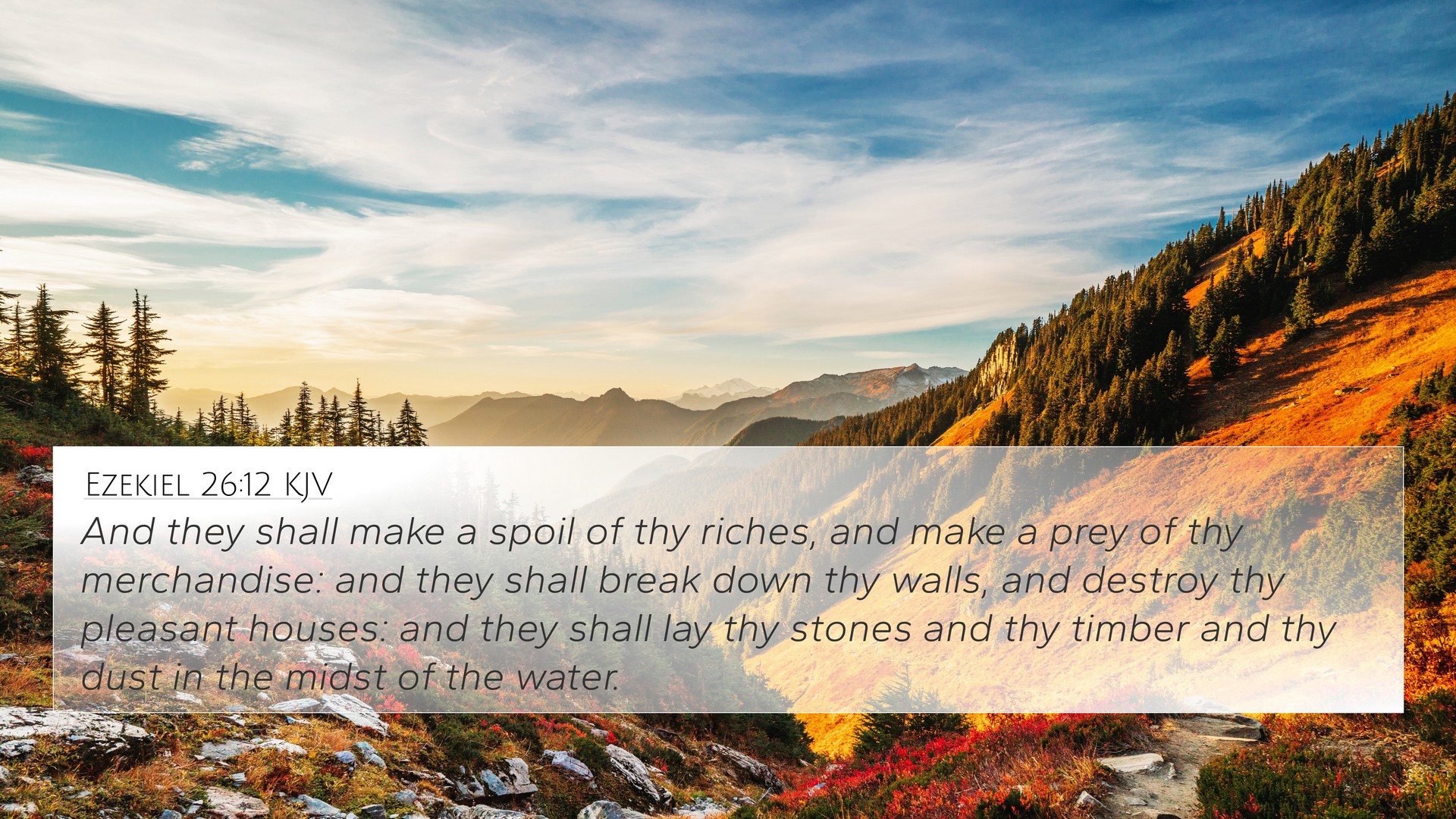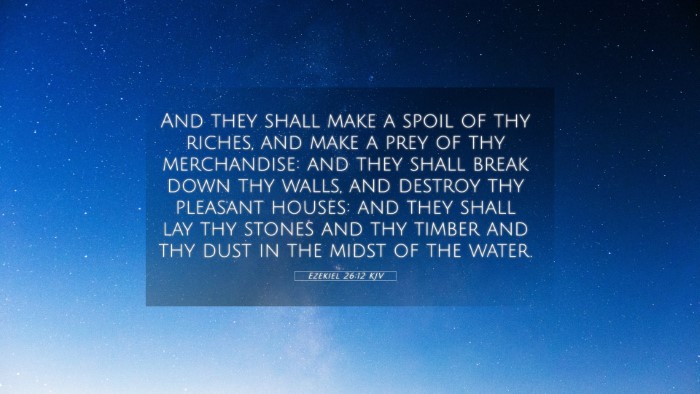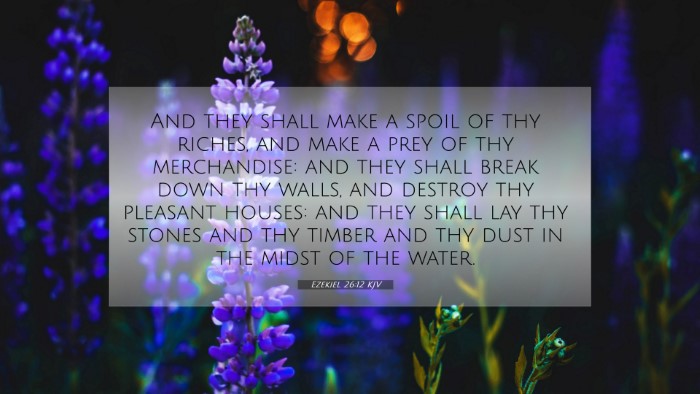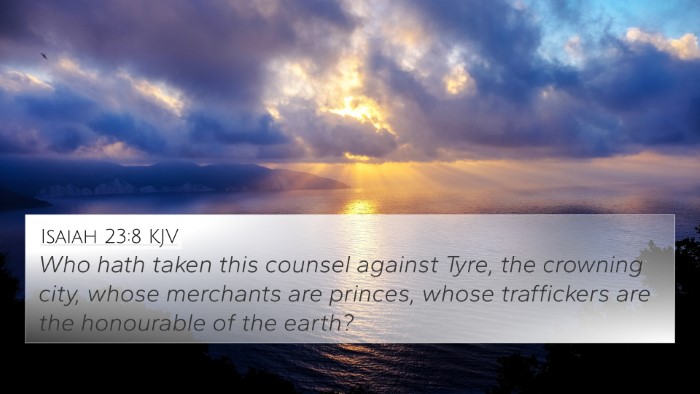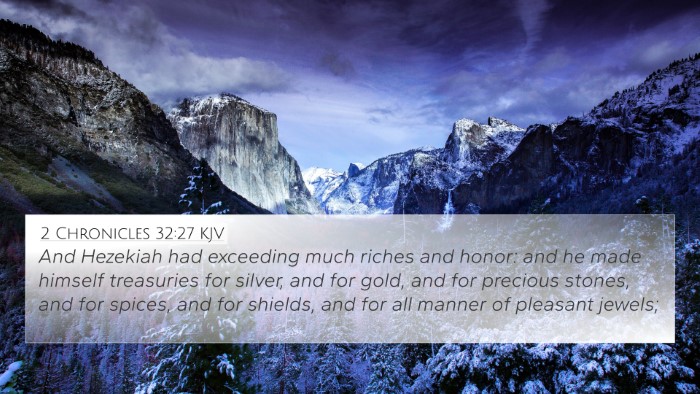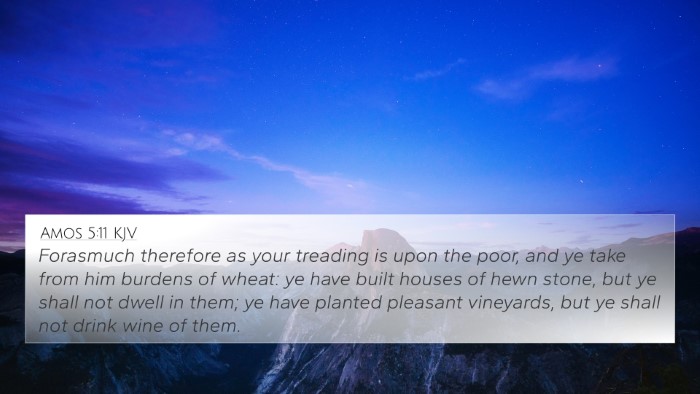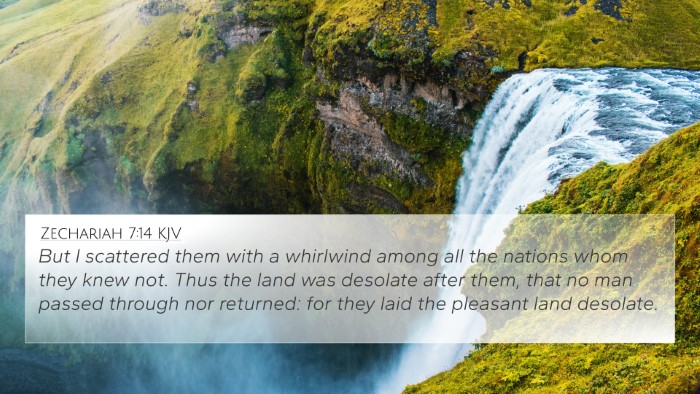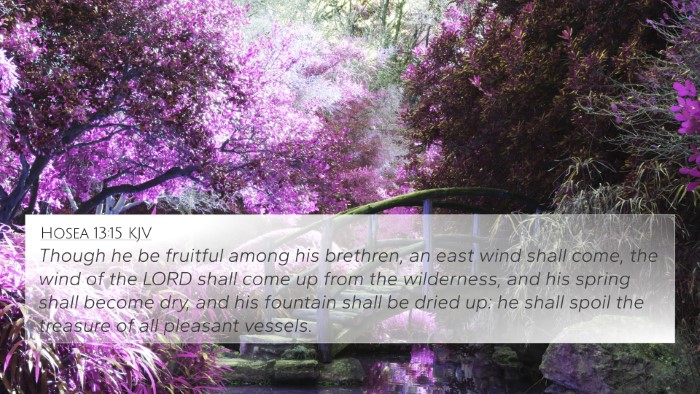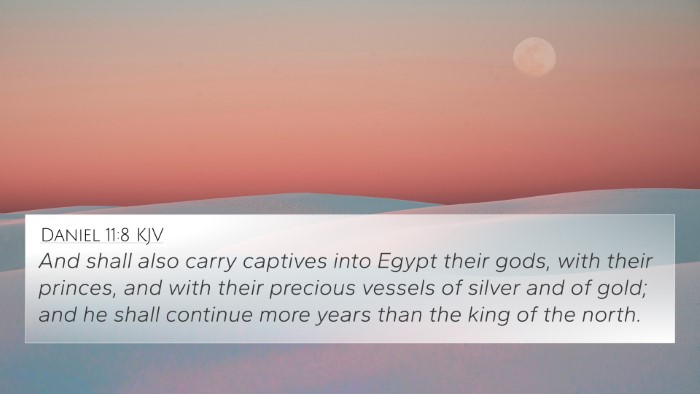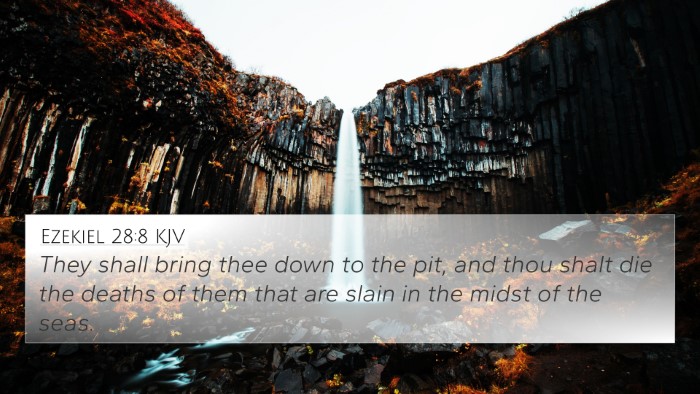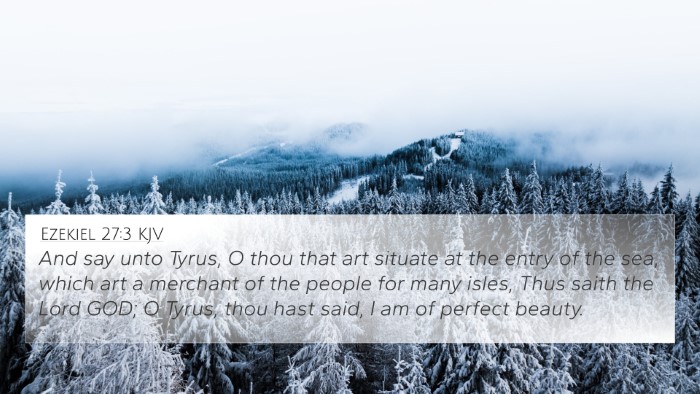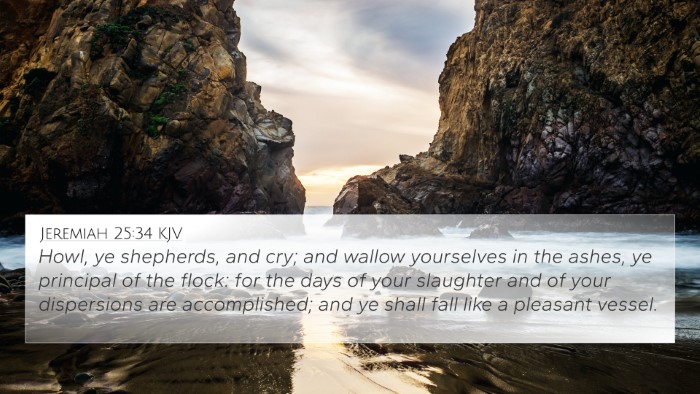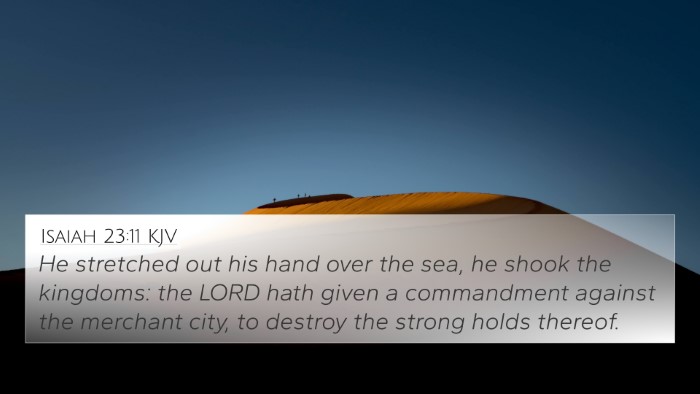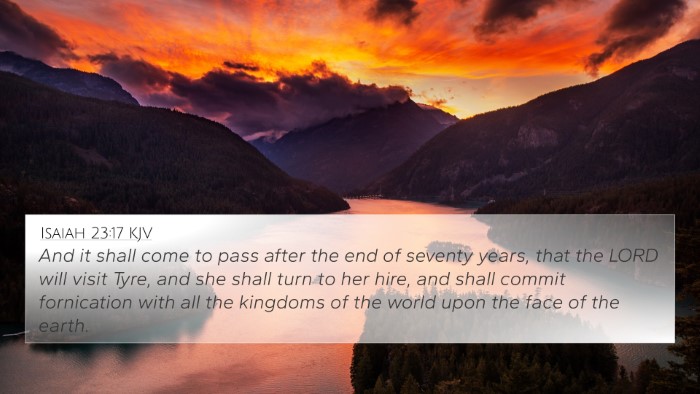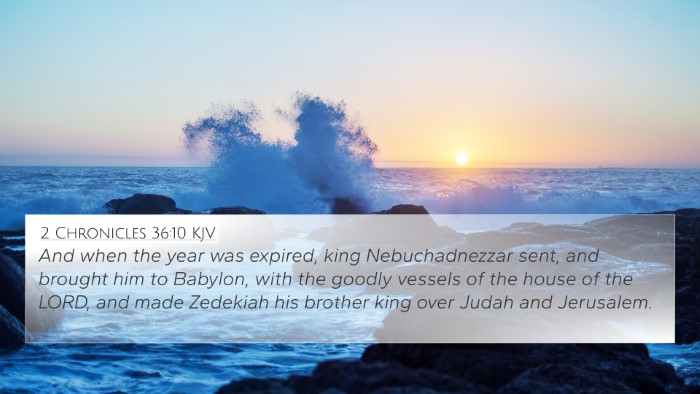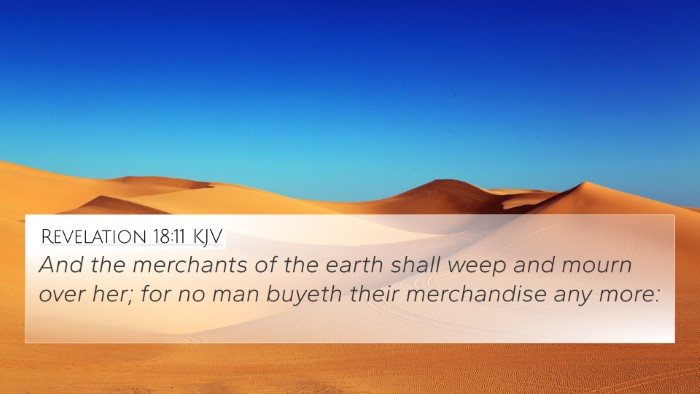Ezekiel 26:12 - Insights and Interpretations
Bible Verse: "And they shall make a spoil of thy riches, and make a prey of thy merchandise: and they shall break down thy walls, and destroy thy pleasant houses: and they shall lay thy stones and thy timber and thy dust in the midst of the water."
Introduction
The verse Ezekiel 26:12 serves as a prophetic declaration concerning the destruction of Tyre, a significant ancient city noted for its wealth and commerce. This passage not only reflects the judgment of God against Tyre but also carries a broader message about divine retribution and the impending collapse of prideful nations.
Summary of Commentary Insights
This section synthesizes insights drawn from Matthew Henry, Albert Barnes, and Adam Clarke, aiming to elucidate the meaning behind Ezekiel 26:12.
Matthew Henry's Commentary
Destruction as Divine Judgment: Henry emphasizes the inevitability of divine judgment. He notes that Tyre, despite its formidable defenses and wealth, will face God's wrath. The riches and the pleasant houses indicate the prosperity that will be turned into ruins under foreign invaders. Tyre's downfall symbolizes the ultimate futile nature of earthly pride and reliance on wealth.
Albert Barnes' Commentary
A Descriptive Prophecy: Barnes provides a detailed view of the prophesied desolation. He explains that the invaders will not only plunder the riches of Tyre but will also dismantle its buildings and lay waste to its infrastructure. The phrase "their stones, timber, and dust" conveys a complete obliteration, illustrating the extent of ruin awaiting the city.
Adam Clarke's Commentary
Symbolism in Destruction: Clarke discusses the possible symbolic meanings behind this destruction. He interprets the act of breaking down walls, in addition to the physical implications, as a metaphor for spiritual unravelling. The 'dust in the midst of the water' metaphor may represent a lost foundation, reflecting the chaos and judgment that accompany such divine decrees.
Key Themes in Ezekiel 26:12
- Divine Retribution: The fall of Tyre is a clear representation of God's judgment against arrogance and sin.
- Human Vulnerability: The passage highlights the transient nature of human achievement and the fallibility of worldly powers.
- Historical Context: Ezekiel's prophecy is situated within the historical backdrop of Tyre's trading prowess, serving as a warning against reliance on material wealth.
- Spiritual Lessons: The verse teaches the need for humility before God, acknowledging that earthly structures and wealth can be stripped away.
Related Bible Cross References
To deepen understanding of Ezekiel 26:12, consider the following cross-references:
- Isaiah 23:1-18 - Prophecy of Tyre's destruction.
- Jeremiah 25:22 - Nations that will face judgment.
- Amos 1:9-10 - Judgment against Tyre for betrayal.
- Revelation 18:10 - Destruction of Babylon, a symbol for worldly riches.
- Ezekiel 27:32-36 - Lamentation over Tyre's fall.
- Matthew 6:19-21 - Teaching against storing earthly treasures.
- Proverbs 16:18 - Pride precedes destruction.
- Zechariah 9:3 - Tyre's riches leading to judgment.
- Psalm 49:10-12 - The folly of trusting in riches.
- 1 Corinthians 3:12-15 - Evaluation of works on the Day of Judgment.
Exploring Connections Between Bible Verses
The intertextual nature of the Bible allows for a deeper understanding through cross-referencing Biblical texts. The themes in Ezekiel 26:12 resonate with numerous other scriptures, revealing patterns of judgment, the nature of wealth, and humanity's relationship with the divine. By examining these connections, readers can engage in a comparative Bible verse analysis that highlights the recurring messages throughout scripture.
Using Bible Cross-Reference Tools
For those seeking to explore these connections further, utilizing tools for Bible cross-referencing can be beneficial. A Bible concordance or Bible cross-reference guide may aid in identifying verses that hold thematic relevance to Ezekiel 26:12. Engaging in cross-reference Bible study methodologies provides a structured approach to biblical understanding.
Conclusion
Ezekiel 26:12 offers profound insights into God's judgment against human pride and the fallibility of relying on material riches. By exploring related scriptures and utilizing cross-referencing tools, readers can gain a comprehensive understanding of this passage within the broader biblical narrative.
